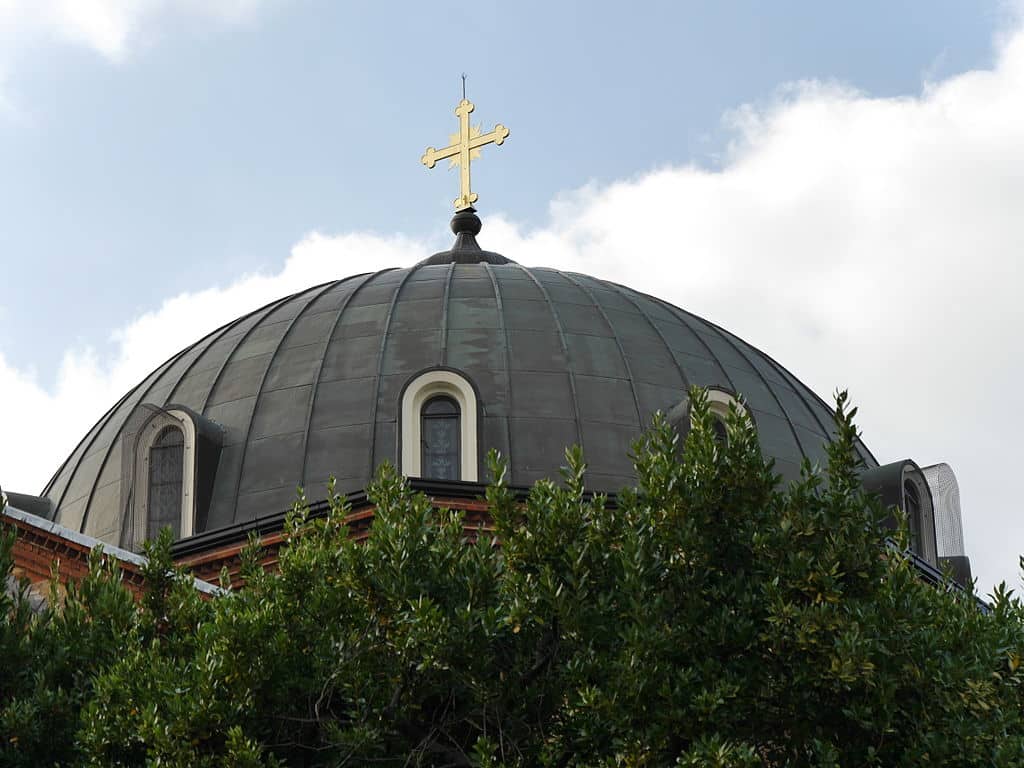

The Greek Orthodox Church and its followers have maintained a presence in the United Kingdom for centuries. Despite their relatively small numbers compared to the more established Anglican and Catholic Churches, they continue to thrive on the island.
The Greek Orthodox Church has served as the fundamental cornerstone of religious and cultural identity for both the Greek and Cypriot communities residing in the United Kingdom, as well as for individuals who have adopted the Orthodox Christian faith within a society that is largely Protestant and increasingly agnostic and atheist.
There are a total of 114 Greek Orthodox Church parishes in the UK, which fall under the Archdiocese of Thyateira and Great Britain.
The Church serves as a spiritual sanctuary and a vibrant cultural center for approximately 300,000 individuals of Greek and Greek Cypriot origin living in the UK, comprising mostly university students and descendants of earlier migrants.
The significance of the Greek Orthodox Church in the UK extends beyond religious activities. It serves a crucial function in preserving the Greek language and traditions, enhancing the bonds between Greek and Cypriot communities for centuries, and supporting several schools that promote Greek language and culture.

The origins of the British Greek Orthodox Church trace back to the late 17th century, marking the establishment of the first organized Greek Orthodox community in London.
In 1877, the marvelous Church of St Sophia was built in Bayswater. Over the years, it became a landmark of Orthodox Christianity in the British capital and later obtained the role of the official seat of the Archdiocese of Thyateira and Great Britain.
Over time, a significant number of additional parishes were established across England, Scotland, Wales, Northern Ireland, and the Republic of Ireland.
This happened gradually in an attempt to meet the needs of growing communities, particularly after waves of migration from Greece and Cyprus during the mid-20th century, and after the Turkish invasion of Cyprus in 1974.
For many Greeks or people of Greek descent who live in the UK, their Church is more than a place of spiritual worship—it is a living cell and a proud carrier of their national heritage.

Greek Orthodox Churches throughout the UK offer services in both Greek and English, fostering a distinct bond between individuals of Greek heritage and the linguistic and liturgical traditions that trace back to the Byzantine and Roman Empires.
Many Greek Orthodox churches also host Greek schools across the UK, where children learn not only their native tongue but also history and useful information about cultural practices from Greece and Cyprus.
These commendable initiatives by the local Greek and Cypriot communities, along with the Greek Orthodox Church of Thyateira and Great Britain, strive to ensure that second and third-generation Greeks and Cypriots remain connected to their roots, despite their inevitable assimilation into British society.
The Church observes significant religious holidays, including Easter, with traditional customs such as the renowned Epitaphios, featuring elaborate processions and midnight liturgies. These events unite individuals from various local communities, reinforcing their appreciation for Greece’s rich traditions.
The Church has adapted to life in the UK by fostering strong relationships with local Anglican and Catholic communities, who form the majority of the Christian flock of the country.
Numerous Greek Orthodox parishes occupy former Anglican church buildings, which were either abandoned or the Anglican church no longer uses for various reasons. This creates a unique blend of Eastern Orthodox iconography with Gothic architecture, something unique to the UK. This coexistence is also a great symbol of Christian unity in a world where diversity tends to prevail.
In recent years, there has been a growing number of British non-Greek converts to Orthodoxy too, something that brings hope to the Greek Orthodox communities across the United Kingdom.
